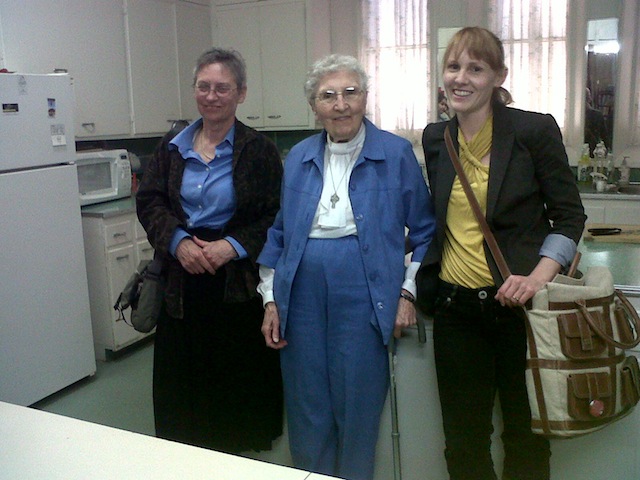The Saint John Common Causes committee invited me to Saint John this week to offer a public talk on the current state of medicare and the 2014 Health Accord. I love being on the road because it offers me a chance to understand the challenges that each province faces with their health-care system and the successes and innovation that they’ve implemented to meet those challenges.
This week I spent time researching health care in New Brunswick, speaking with journalists and radio hosts, and talking to the community about their encounters with medicare.
New Brunswick, like much of Canada — especially the Atlantic region — has an older demographic. In fact, New Brunswick’s senior population is set to double in the next 20 years. The federal cuts to veterans’ long-term care beds — along with RCMP and refugees — means more expenses for the provinces. There isn’t a province or territory in Canada in the position where they can close long-term care beds and N.B. is certainly no exception.
According to Professor Steve Morgan at the University of British Columbia, New Brunswickers have more than continuing care challenges to tackle. N.B. also has the least public coverage for senior’s prescription drugs in Canada and is tied with P.E.I. for last place with public coverage for non-senior prescription drugs. We know that Canadians are struggling to fill their prescriptions and with our federal government pushing trade deals like the Comprehensive Economic and Trade deal with the EU that will reward big pharma with an additional $3 billion on the price of drugs, more Canadians are going to be prohibited by cost from taking their medication.
It is incredibly unjust that across Canada people pay different prices for the same drugs and some people aren’t able to access the drugs that they need. Provinces and territories have different drug purchasing lists, which mean that access to medicine is not the same across our country.
Canada is still the only industrialized country with a universal health-care system and without a universal drug coverage plan. We also pay the fourth highest price for drugs of any country.
But there are answers for provinces like New Brunswick, and for all of Canada. A 2014 Health Accord with a national pharmacare program will ensure that all Canadians can access the same drugs, without worrying about their ability to pay for them. Instead, provincial, territorial, and federal drug insurance plans and your wallet would save $11 billion a year!
It was good political timing for me to be in New Brunswick. Health care has been in the news a lot recently. The province is trying to find cost savings in health care and at the moment they’re in a dispute with doctors over $20 million.
But $20 million is the tip of the iceberg for N.B. The $36-billion cut to the Canada Health Transfer announced by the Harper government in December of 2011, will mean a $715-million cut for NB after the 2015 election (if Harper is to win). While in N.B., I researched the annual operating budget of their hospitals and discovered that $660 million covers 11 hospitals and 30 medical clinics. So even if N.B. were to shut down these 11 hospitals and 30 medical clinics for one year, they’d still need to find an additional $55 million in savings! The $20 million with doctors is nothing to scoff at, but the race to find efficiencies is going to get a lot more intense in the coming years and we all need to be prepared to fight against extreme austerity and attempts to privatize the system under the lies that its a more affordable way to deliver services.
I didn’t want to leave N.B. with bad news and no hope. I think it’s extremely important to stress that the cuts to public health care are not financial decisions, they are political ones. Ottawa has the money to ensure that all residents of Canada are covered from cradle-to-grave with comprehensive health care in their community. But instead, Ottawa has chosen to spend $80 million to celebrate the war of 1812, $30 billion on fighter jets, and $90 billion on tax cuts since the 1990s.
We can absolutely afford public health care. We can in fact only afford public health care as it is the most affordable way to deliver health-care services. It costs less, provides more services with better quality of care, and has everyone covered.
So like many provinces across the country, public health care needs to be protected, strengthen and expanded in New Brunswick and a 2014 Health Accord that includes national standards on home and community care, long-term care, mental health care and prescription drugs would be a big part of the solution to N.B.’s medicare challenges.

Thanks to the Saint John Common Causes committee for inviting me to join in the health-care conversation. Thank for taking the time to talk to me about the challenges here and the ways you’re working to overcome them. I hope to visit again on June 5 for CUPE’s rally to protect, strengthen and expand public health care.
I look forward to spending next week in Halifax before I travel to Ontario to meet with our chapter delegates at the ON-Que regional meeting where we can discuss health care and the upcoming Council of the Federation meeting in Niagara-on-the-Lake.



